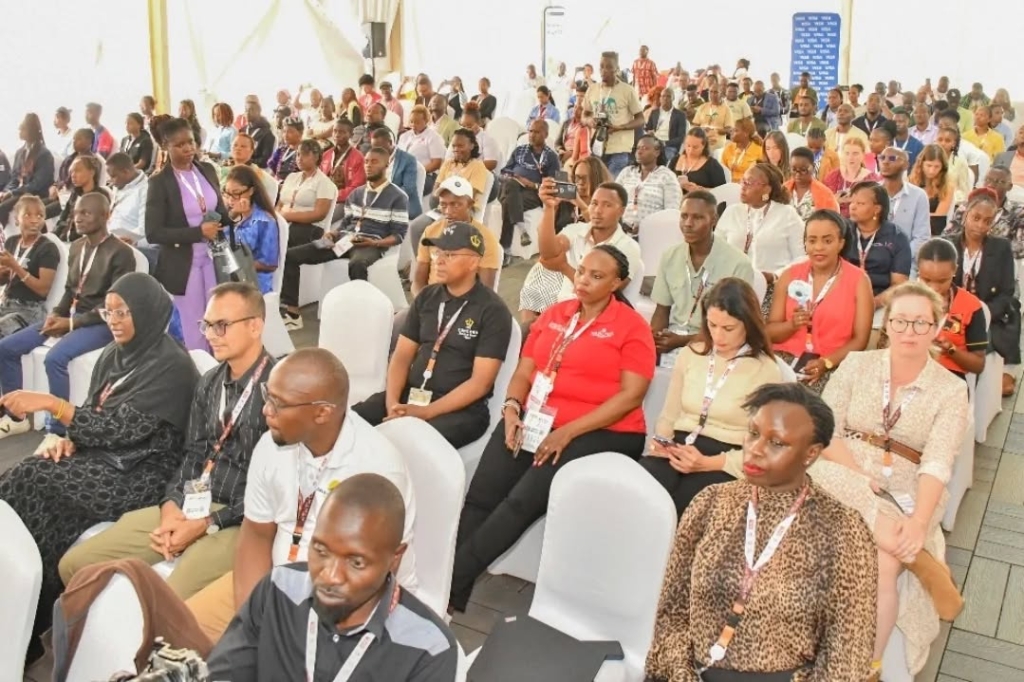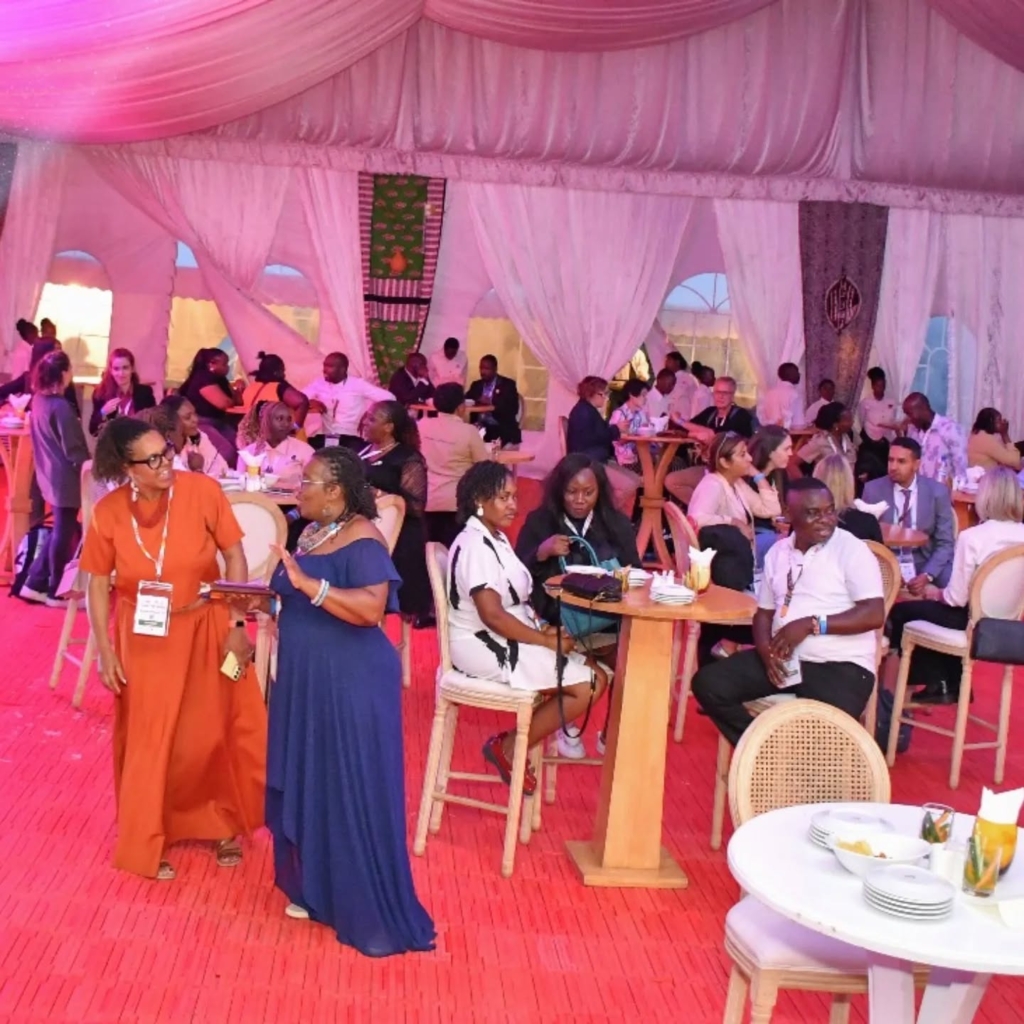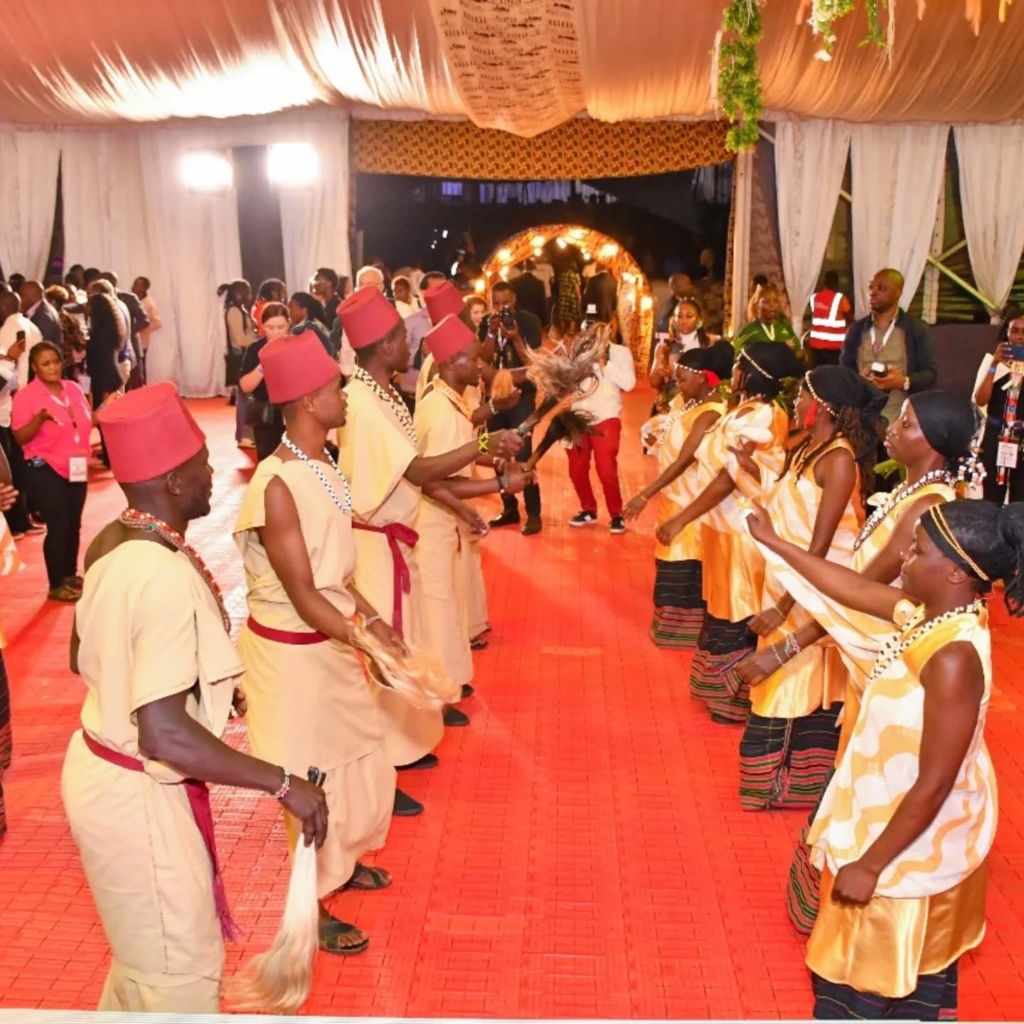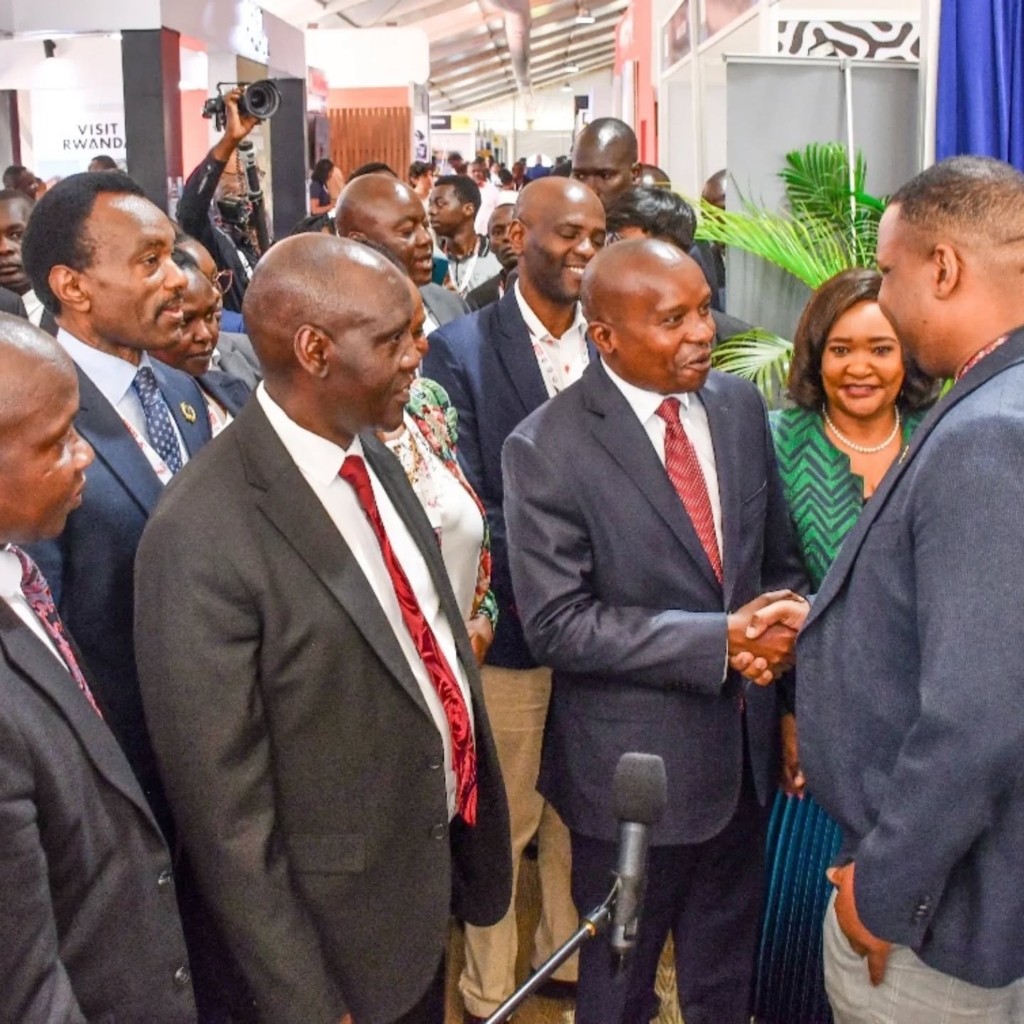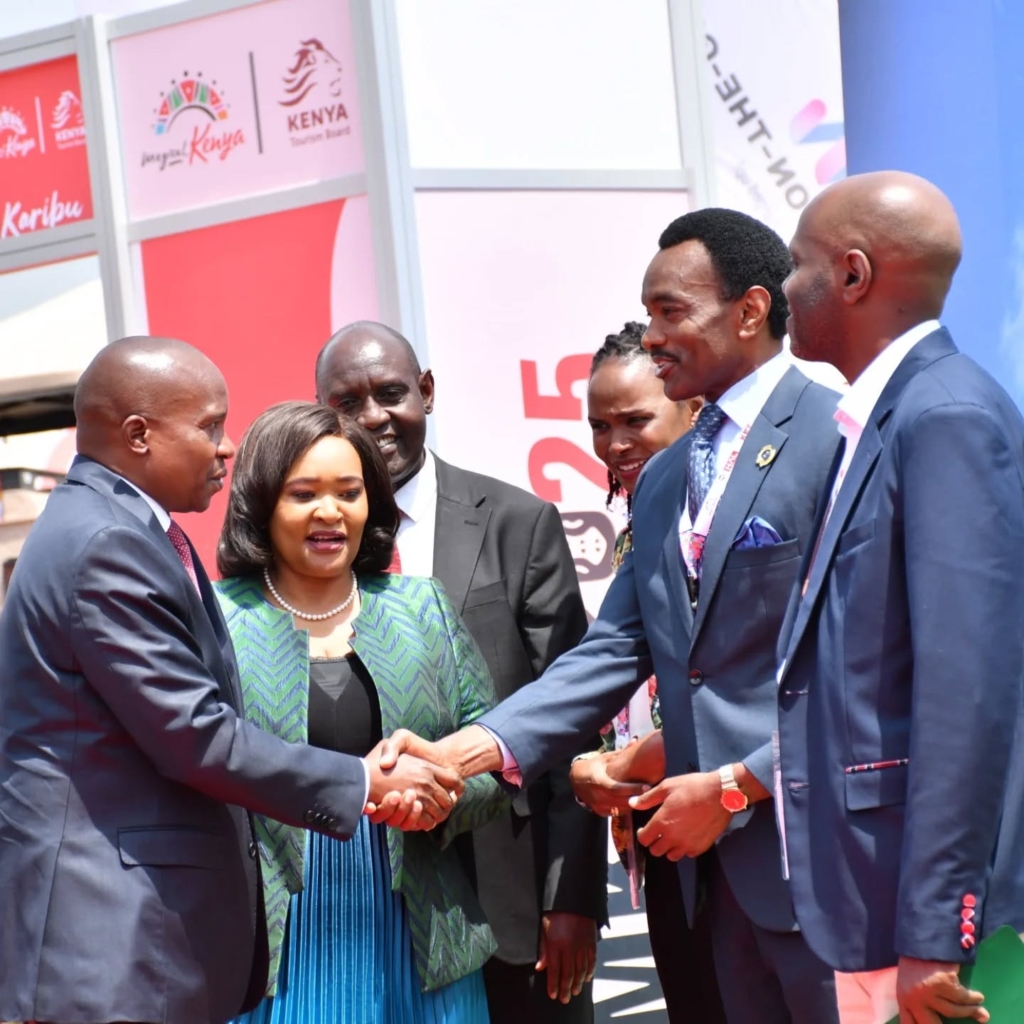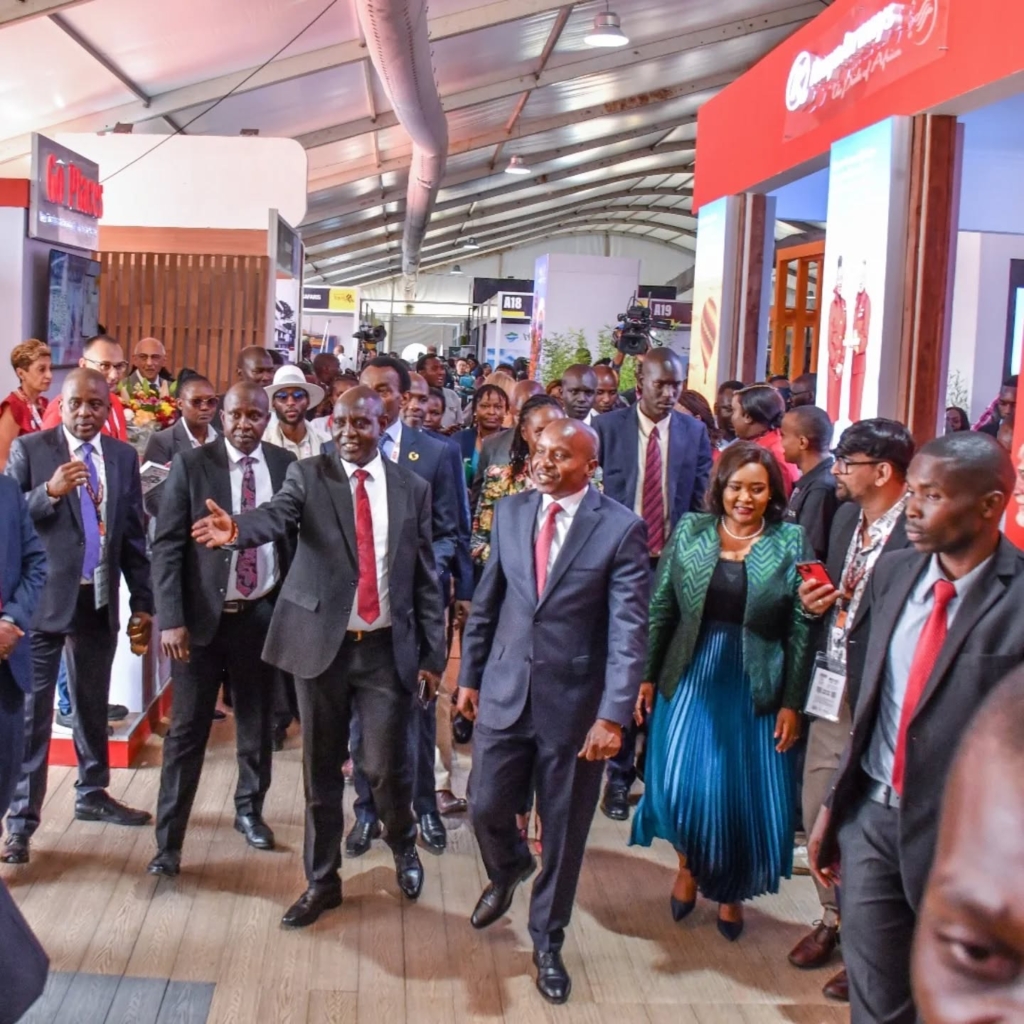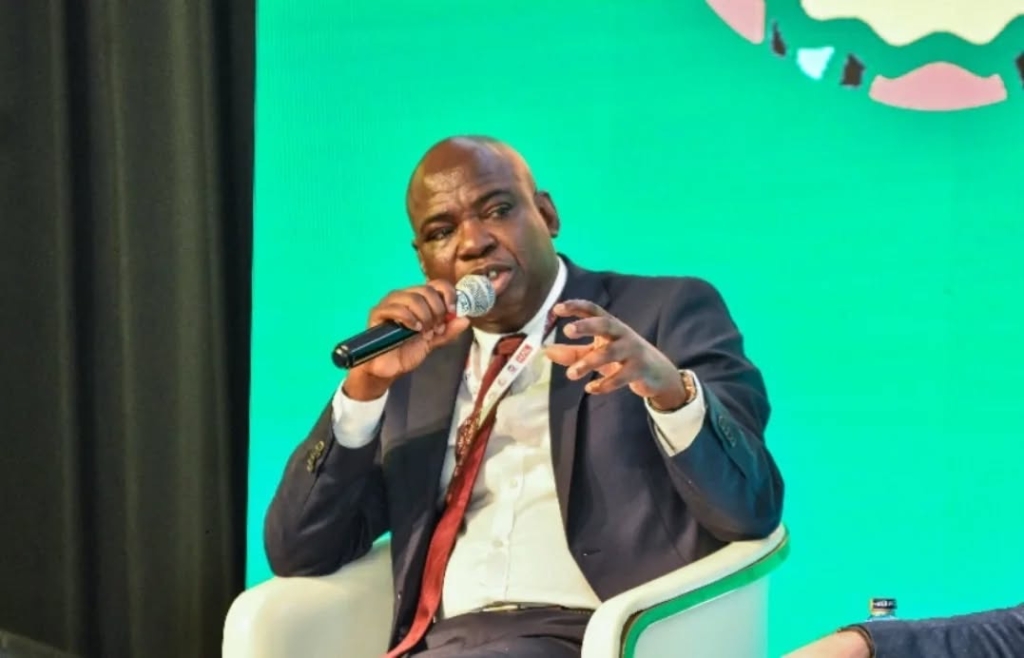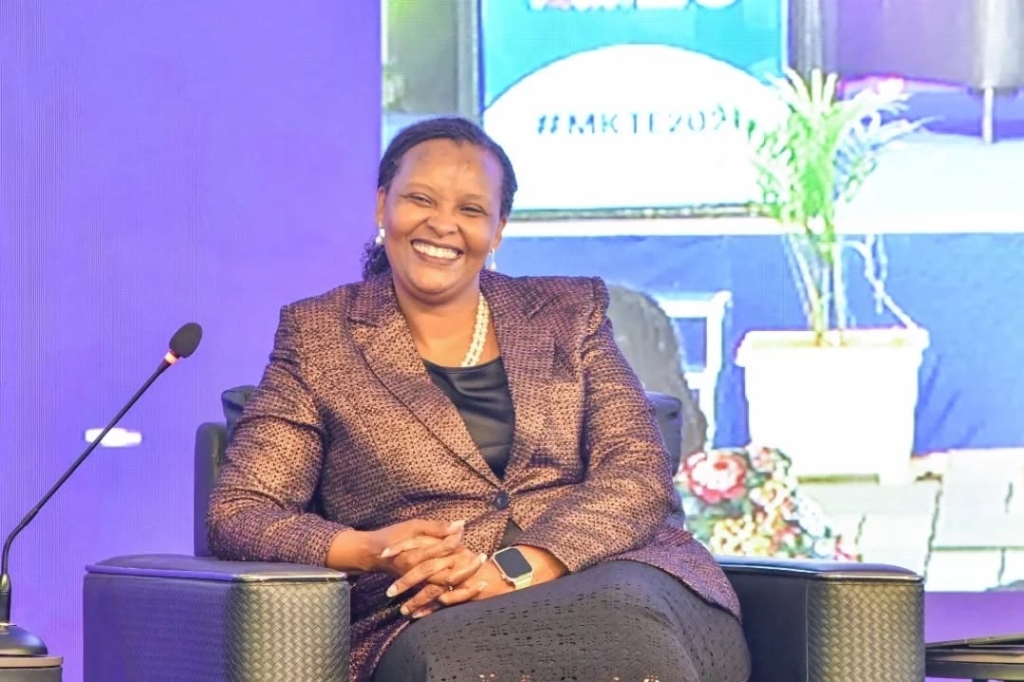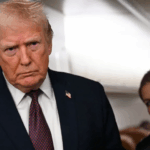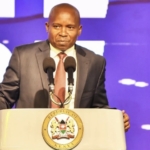
The 15th edition of the Magical Kenya Travel Expo (MKTE) opened in Nairobi this week with a call for Africa to strengthen cooperation, diversify products and attract new investment in order to fully unlock its tourism potential.
Kenya’s Deputy President, Hon. Prof Kithure Kindiki, who presided over the official opening at the Uhuru Gardens in Nairobi, said Kenya received 2.4 million international visitors in 2024, representing a 15 per cent increase from the previous year. The sector generated KSh 452 billion in revenue and supported 1.7 million jobs.
Prof. Kindiki added that the government has set a target of 5.5 million visitors by 2027, a goal that will be driven by investments in infrastructure, visa reforms and the development of new products such as cruise tourism, astro-tourism and cultural experiences.
Tourism and Wildlife Cabinet Secretary Rebecca Miano said the sector is projected to contribute KSh 1.2 trillion to the economy in 2027. She noted that MKTE has become more than a trade fair, evolving into a Pan-African marketplace for ideas and deals.
The Cabinet Secretary said this year’s edition of MKTE attracted 6,500 delegates, more than 400 exhibitors and over 10,000 scheduled business meetings. For the first time, it also features the Africa Tourism Investment Forum (ATIF), a platform designed to connect investors, policymakers and entrepreneurs.
At the investment forum following the official launch of the expo, speakers highlighted the need for African countries to present tourism opportunities more effectively in order to attract financing. They pointed to road and railway infrastructure, cruise tourism, the development of convention facilities and eco-tourism beyond traditional safaris as growth areas that could deliver strong returns if packaged well.
Industry leaders also underlined the importance of first marketing Africa to Africans and seeking investment funds from high net worth Africans before chasing international investors and markets.
Policy integration under the African Continental Free Trade Area was another key theme on the second day of the expo. A ministerial roundtable brought together senior officials from Kenya, South Sudan, Zanzibar and the AfCFTA Secretariat, who agreed on the need to harmonise visa regimes, simplify cross-border movement and strengthen transport links. They stressed that Africa’s tourism future depends on the removal of barriers that currently make intra-African travel expensive and inconvenient.
A subsequent panel discussion reinforced the call for collaboration, with experts from across the continent stressing the need to market Africa as a single tourism destination rather than competing country by country. They also identified opportunities in underexplored regions such as West Africa, highlighted the growth potential of women-led enterprises, and urged stakeholders to move beyond the traditional safari narrative to showcase Africa’s wider cultural and creative wealth.
The AfCFTA’s upcoming Forum and Festival on Tourism, Culture and Creative Industries, dubbed Creatives Connect Africa and scheduled for Accra from 24 to 26 November, was highlighted as a starting point in redefining the direction of tourism for Africa’s future and its benefits to the creative sector.
MKTE 2025 has also placed sustainability at the heart of its programme. Delegates took part in the “One Tourist, One Tree” initiative at Carnivore Grounds, symbolically linking tourism growth with conservation efforts. Kenya’s wider tree-planting programme and community-based tourism projects were also presented as examples of how environmental stewardship can align with economic development.
The expo, which runs until Friday, will close with discussions on sustainability, MICE tourism and product diversification.
Now in its 15th year, MKTE has established itself as the continent’s premier travel trade fair, providing a platform for African destinations to showcase opportunities, strengthen regional cooperation and position the continent as a competitive global destination.
